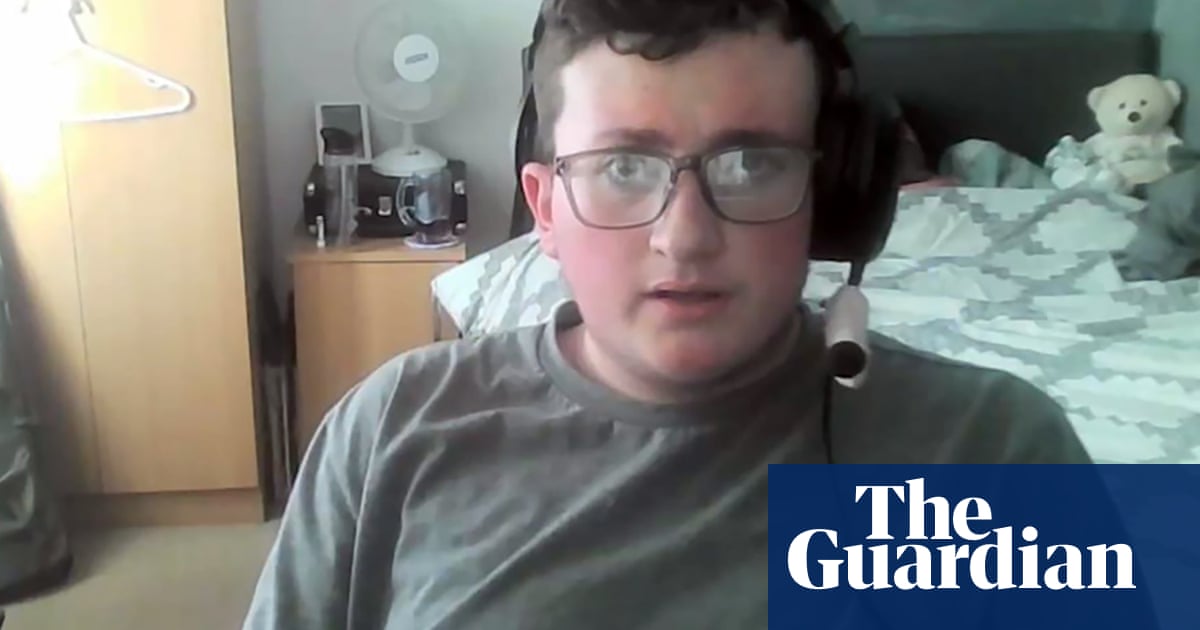
A senior counter-terrorism officer has warned that children and young people are increasingly being radicalised online after spending long periods on the internet during the pandemic.
Det Supt Andy Meeks said a growing number of vulnerable people were accessing extreme material after spending hours unsupervised online.
He said: “We have seen a significant increase in online investigations or investigations of individuals who’ve been committing acts of terrorism online.
“A lot, I think, coincided with the pandemic, when we saw a lot of people who spend extended periods online in isolation, and I think that has definitely led to an increase in this type of activity. It’s certainly an increased focus of our work in counter-terrorism policing.”
Meeks, the head of investigations for Counter Terrorism Policing North West, was speaking after a 20-year-old student was jailed for 13 years for preparing acts of terrorism by compiling and sharing a bomb-making manual.
Jacob Graham, a self-styled leftwing anarchist, had said he wanted to kill at least 50 politicians. He told his trial he was “quite anti-government”, adding: “I didn’t agree with the idea of it – the way certain things were handled, the pandemic, the cost of living.”
Graham had buried a knife and bomb-making chemicals in a woodland in Formby, near Liverpool. On the wall in his bedroom he had a printout of a car bomb exploding with the words: “Make politicians afraid to start their cars again.”
Meeks said Graham, who was 19 when he was arrested in May, had made a terror plan over “several months” from his bedroom at the home he shared with his mother in Liverpool.
He said the student had a grudge against his college because he had failed a computer science exam and that he was “fairly socially isolated” and did not appear to have any wider interests.
Mr Justice Goose jailed Graham for 13 years with a five-year extended licence on Monday at Manchester crown court. Passing sentence, he said Graham appeared to be an “ordinary young man, with an interest in fireworks, military and outdoor pursuits”.
However, he continued: “In reality, you are a dangerous young man. You described yourself as the first UK homegrown terrorist … You offered yourself as a very knowledgable and experienced terrorist. I am satisfied you are a dangerous offender.”
Home Office figures released last week showed that the number of children arrested on suspicion of terror offences reached a record high last year.
Forty-two people aged 17 and under were detained under the Terrorism Act in the year to December 2023, nearly a fifth of the total number of terror suspects.
It was the highest number since records began in 2002 and more than double the figure two years previously. It is six times the number a decade earlier.
Police have warned that “terrorist groomers” are exploiting the amount of time children spend online unsupervised by their families, schools, social workers or mental health services.
Jonathan Hall KC, the independent reviewer of terrorism legislation, said last week that the rise in arrests could be linked to isolated teenagers being radicalised in “malign online spaces”.
Most of the arrests have been of young people accessing extreme rightwing material but Graham told police he was leftwing.
He told officers after being arrested that he was “more like an anarchist”. He said: “I don’t like the idea of a central control and I don’t really like the monarchy.” He said he supported the Green party and was an environmentalist who did not like the way “corporations act and how they damage the earth.”
Meek said detectives had not found a “kill list” and it was not clear who Graham intended to target, but he had acquired bomb-making material and a manual to build a 3D-printed gun.
“He appeared to be motivated by a hatred of the government’s ability to repress individuals. Rather than any specific political parties or any specific politicians, it was more the ability of governments to suppress individuals’ human rights.
“What we were unable to ascertain is whether he’d identified any definite target. It appears that his plans weren’t finalised. It’s difficult to speculate on what he might have done at some point in the future.”












